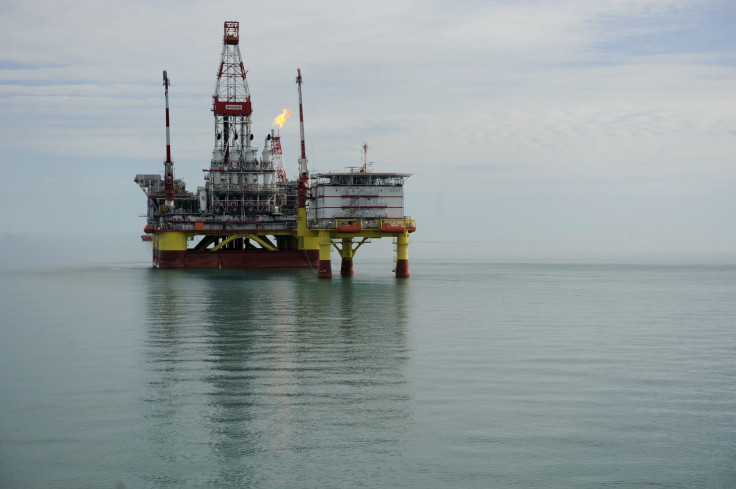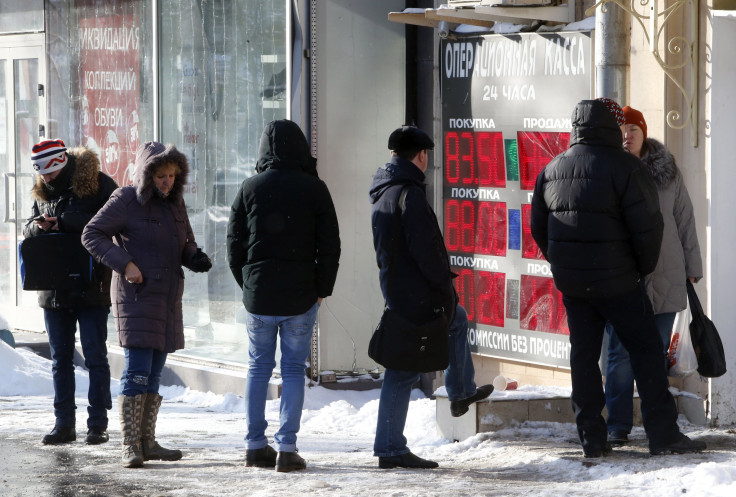Russian Government Approves $9B Plan For Battered Economy

MOSCOW — The Russian government has approved a 684.8 billion ruble ($9.3 billion) anti-crisis plan as the country’s economy struggles with low oil prices and Western sanctions, and looks set to contract for a second consecutive year.
Russian Prime Minister Dmitry Medvedev said Tuesday that he had signed off on the 120-point plan. According to a copy of the plan published online by the Russian government it is designed to “guarantee the stable social and economic development of the Russian Federation in 2016."
The Russian economy shrank 3.7 percent in 2015 and rating agency Standard & Poor’s said last week it expected a second year of recession in 2016, with gross domestic product predicted to contract by 1.3 percent.
The price of oil, Russia’s chief export and forex earner, collapsed from highs of $115 a barrel in mid-2014 to below $30 a barrel earlier this year.
The anti-crisis plan approved by the government comes after weeks of wrangling and is substantially smaller than initial proposals. Russian Economic Development Minister Alexei Ulyukayev told a Feb. 18 cabinet meeting that the anti-crisis plan would cost 880 billion rubles ($11.9 billion).
“The size of plan suggests that the Finance Ministry has successfully repealed efforts to boost spending as earlier versions of the plans called for a more aggressive [approach],” analysts at Bank of America Merrill Lynch said in a note to investors Wednesday.

The majority of the funds — 462.2 billion rubles ($6.3 billion) — for the rescue plan would be drawn from the budget in its existing form, but the government has yet to determine where the remaining funds will come from, the Vedomosti business daily reported Wednesday.
Russia has several rainy-day funds, built up during years of high oil prices, and the Central Bank reported Feb. 19 foreign currency reserves of $379 billion. Vedomosti speculated Wednesday that aside from spending cuts, other possible sources of revenue could be a recent gasoline excise duty hike or improved tax collection.
Russia’s economic woes, including a currency collapse and significant declines in real wages, have been compounded by Western sanctions on Moscow imposed in 2014 over Kremlin's role in the Ukraine crisis. But the maximum damage has been inflicted by low commodity prices and experts see little chance that they will bounce back in the near future.
Finance Minister Anton Siluanov said in January that if oil prices remain at about $30 a barrel, Russia would face a budget shortfall of 3 trillion rubles.
About half the revenue of the Russian government is drawn from energy exports and policy makers are struggling to control the budget deficit which grew to 3 percent in 2015, its widest in five years.
“A new wave of price declines for hydrocarbons and metals has undermined Russia’s prospects for an economic recovery this year, prolonging a recession that has spanned the past 18 months,” Standard & Poor’s said in a report last week, which downgraded Russia’s economic prospects for 2016.
© Copyright IBTimes 2024. All rights reserved.






















